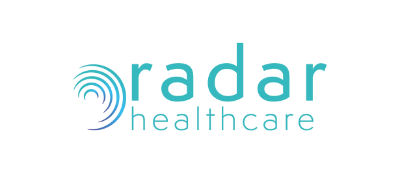Are failures in patient safety driving up the cost of NHS compensation claims?
29 July 2020
According to a recent BBC article, the NHS in England faces paying out £4.3bn in legal fees alone to settle outstanding claims of clinical negligence. And with the estimated total cost of outstanding claims equating to 64% of NHS England’s annual budget (2018-2019), the Department of Health’s focus must be how to tackle clinical negligence through the improvement of patient safety.
Reporting incidents is widely recognised as an important process for improving patient safety, and one which all healthcare organisations are mandated to carry out. As NHS England strives to develop a culture of continuous improvement, it’s clear that whilst this statutory requirement has contributed to the rise in incidents reported to the National Reporting and Learning System (NRLS), it could also have led to such activity has become habitual – perhaps almost a ‘tick box exercise’.
There’s no published standard for incident reporting levels as it is recognised that the number of incidents reported does not directly correlate to the level of patient safety. NHS England states:
A ‘low’ reporting rate from an organisation should not be interpreted as a ‘safe’ organisation, and may represent under-reporting. Subsequently, a ‘high’ reporting rate should not be interpreted as an ‘unsafe’ organisation, and may actually represent a culture of greater openness.
As an organisation’s reporting culture matures, staff become more likely to report incidents. Therefore, an increase in incident reporting should not be taken as an indication of worsening patient safety, but rather as an increasing level of awareness of safety issues amongst healthcare professionals and a more open and transparent culture across the organisation.
But to truly close the loop on incidents, we need to go beyond just reporting them; to ensure lessons are learnt, associated actions are carried out, and outcomes measured with the same rigour as the initial reporting process. The reality is that despite the best intentions of healthcare professionals, pressures on the system often mean that whilst mandated requirements are met, keeping sight of how this complex chain of interactions and events works thereafter is a challenge1.
Having recognised this, Radar Healthcare has been designed to support preventative action planning, helping health and care organisations to implement a consistent, proactive approach towards the end to end management of incidents, adverse events, accidents, complaints, concerns and compliments.
Every incident and event type within Radar Healthcare has a defined workflow (customised to your needs), delivering automated action planning and accountability for each subsequent step. The software can support root cause analysis of the incident; and integrated action planning ensures that lessons learned lead to service improvements.
Further reporting to external regulators can also be incorporated into the workflow, reducing duplication of workload for mandatory notifications.
Once the incident logging process has been completed, attention needs to turn to preventative action planning – and this is where Radar Healthcare really excels. Each incident can be risk assessed and any mitigating actions logged through the software. Any incident or event log can then be linked to departmental or corporate risk registers to ensure oversight of your risk management strategy and visibility of associated risks escalated from reported incidents.
At a macro level, Radar Healthcare’s intelligent analytics platform works with incident data points collected over time to automatically detect anomalies in performance and alert the appropriate people to ensure that matters are dealt with proactively. You can read more about this here.
Working in line with NHS priorities and regulatory standards, Radar Healthcare provides health and care organisations with a comprehensive framework by which to work; supporting patient safety strategies and reducing preventable harm.
1 https://www.kingsfund.org.uk/blog/2016/12/what-have-we-learnt-about-keeping-people-safer
About Radar Healthcare
Radar Healthcare provides quality and compliance focused software that helps improve the delivery of health and social care, whilst helping you evidence effectiveness and continuous improvement. We know you aspire to be outstanding, so we help simplify the regulatory complexities you face, giving you more time to focus on delivering excellent care. Want to know more? Get in touch with us today, or book a demo of our software here.







